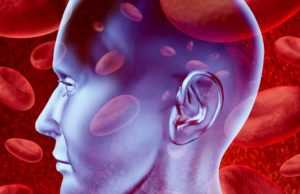Tag: transient ischaemic attack
Incomplete imaging of transient ischaemic attack increases subsequent stroke risk
Transient ischaemic attacks (TIAs) encountered with incomplete neurovascular imaging in emergency departments (EDs) have been associated with higher odds of subsequent stroke within 90...
AHA statement: Even transient stroke symptoms require emergency assessment
Stroke symptoms that disappear in under an hour—often referred to as a transient ischaemic attack (TIA)—need emergency assessment to help prevent a full stroke,...
TCAR may be associated with favourable outcomes for treatment of restenotic...
Transcarotid artery revascularisation (TCAR; Silk Road Medical) may be associated with favourable in-hospital outcomes for the treatment of restenotic carotid lesions after carotid endarterectomy...
Behavioural interventions and more holistic approach signal “paradigm shift” in latest...
In May 2021, the American Heart Association (AHA)/American Stroke Association (ASA) updated one of its flagship guidelines—the secondary prevention of stroke guideline—for the first...
Prevention based on first stroke cause can reduce risk of subsequent...
Identifying the cause of a stroke or transient ischaemic attack (TIA)—sometimes called a “mini-stroke”—can lead to specific prevention strategies to reduce the risk of...
Canadian TIA score identifies risk in mini-stroke patients of subsequent stroke,...
A new study published in the British Medical Journal (BMJ), has concluded that the Canadian transient ischaemic attack (TIA) score identifies the risk of...
Medical attention seeking for TIAs and minor stroke after the ‘Act...
Standing in stark contrast to the public’s response to major stroke, the extensive FAST-based public education campaign has not improved the response to transient...
General practitioner records indicate long term effects on patients of transient...
New findings from the University of Birmingham (Birmingham, UK) challenge the ‘transient’ nature of mini-strokes and provide insight into the long-term impact of an...









